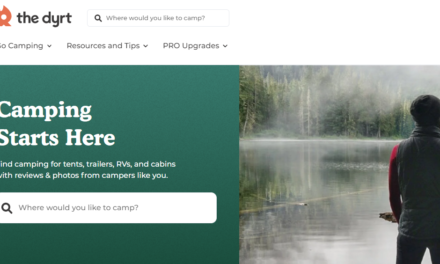As a content creator drumming up subscribers for newsletters or Twitch, you might not feel like you have much in common with the mom-and-pop shop hawking ice cream to customers down the street. But there are plenty of similarities.
You both sell something. You both look for ways to market and grow your customer base. And, let’s face it, you both are entrepreneurs who probably aren’t flush with cash to spend on a business coach, financial guru, or another expert to help you build a solid foundation for your burgeoning enterprise.
Thankfully, free and inexpensive resources are available that help small business owners thrive. And, just like those ice cream shop owners, content entrepreneurs like you can take advantage of these opportunities, too.
“The small business owners and entrepreneurs who are the most successful are the ones who are willing to ask for help,” says Katie Gailes, senior director, membership and diversity, equity, inclusion, and belonging for the National Association of Community College Entrepreneurship. The association supports efforts that help community colleges and historically Black colleges and universities with their entrepreneurship courses, programs, and initiatives.
To help you find the help, we wanted to share these resources that can help you get into the nitty-gritty of business operations — from marketing, SEO, and e-commerce, to business planning and strategy, financial management, and hiring.
Sure, the mentors and business experts you connect with through these resources may have never streamed on Twitch or posted on YouTube. But the mechanics of thinking big picture about business strategy and growth often is the same or similar regardless of the industry. An online merch shop is an online merch shop — whether it’s for a streamer or that ice cream shop.
SCORE
SCORE, a nonprofit and resource partner of the U.S. Small Business Administration, has been helping small business owners with a slate of almost entirely free services and resources since 1964.
Its library has a variety of templates, calculators, and information about everything from how to create a business plan to the impact of TikTok on small businesses. And it offers free webinars and on-demand courses along with low and no-cost in-person workshops.
But SCORE may be best known for its business mentor program, which connects small business owners with experienced entrepreneurs in their geographic area for one-on-one guidance. More than 11,000 volunteers freely share their expertise to help others succeed.
“You just don’t know what you just don’t know,” says Candice Stennett, vice president of marketing for SCORE. “The last thing that you want as a business owner is to be blindsided by a regulation that you’re not familiar with or anything that might negatively impact your business. That’s the benefit of working with a mentor. These are all people that have been in your shoes, have gone through all of that, and have navigated those challenges and can help you avoid them.”
.@SCOREMentors lets entrepreneurs get guidance from people who have been in their shoes and can help them navigate the challenges their mentors encountered. And it's all free. #ContentEntrepreneur Share on XAs a small business owner, you can work with SCORE mentors in a variety of ways. You could seek out an SEO expert for a one-off meetup to find ways to optimize your blog, for example. Or you could develop a long-running business relationship that spans years. Some entrepreneurs work with several mentors who are experts on different topics, from e-commerce to marketing or business strategy.
“We can help you understand how to monetize your business, how to turn it from a hobby to a business, or at least recommend resources that you might want to turn to if you have legal questions or tax questions,” Candice says. “Once you start monetizing your ideas, I do think it’s smart to start thinking about it as a business and treating it as such.”
Free resource: SCORE
Community colleges and Small Business Development Centers
Some community college systems have robust programs to help small businesses. North Carolina, for example, has a network of 58 small business centers based at community colleges where entrepreneurs can take advantage of free resources, online webinars, and other programs, says Katie Gailes, former director of entrepreneurship initiatives at Wake Technical Community College in North Carolina.
A simple search for “small business centers, community colleges” likely will turn up a host of options near you.
In some states, community colleges have incubators designed to help small businesses launch. Others might connect local entrepreneurs with students seeking hands-on experience. For example, a content creator might connect with a graphic design student who can create a new logo for free.
Katie says community colleges sometimes are also the home base for another U.S. Small Business Administration program — Small Business Development Centers, which provide counseling and training for small businesses. (The SBA also has Women’s Business Centers throughout the United States. These centers are open to all people regardless of gender identity.)
Even if you don’t have a community college near you with small business programs, you often can take advantage of virtual offerings at community colleges elsewhere, Katie says. But, if you do have access to a local community college, it could be well worth your time to take advantage of in-person programs, she says. You may end up connecting with a local business — another creator, a photographer, or a video editor, for example — who you might be able to learn from, hire, or partner.
.@NACCE (National Association for Community College Entrepreneurship) and @ASBDC (US Small Business Development Centers) offer a wealth of digital and face-to-face resources for free to help creators become entrepreneurs, says Katie… Share on X“You never know when you’ll meet that person who has a compatible business or somebody who can promote your platform or somebody you can interview or somebody who has a service you can use,” Katie says. “By getting out and meeting with real human beings, you can make those connections that will be beneficial and will be like an investment in your business.”
Free resources: Community college finder, Small Business Development Centers, Women’s Business Centers
Keep exploring for free or low-cost business resources
“Once you raise your head up and start looking, you’ll find that there is so much out there that you can take advantage of,” Katie says.
Of course, not every mentor-mentee relationship will click. And not every single webinar or free resource will provide exactly what you need. But the key, Katie and Candice say, is to keep looking and learning.
“Even if you haven’t found a way to monetize your content channel or the content you produce, if that’s something you think you might want to do, I would encourage you to visit our website and at least start browsing through our online resources,” Candice says. “That way, when you’re ready to start, you can make a smart start.”
Use free resources like @SCOREMentors to learn about the business side of operating a #ContentBusiness so you can make a smart start, says Candice Stennett. Share on XAnd there’s always room to learn more. Running a business is kind of like maintaining a vehicle, Katie says. After 5K miles or a year, it’s time for a check. The world, especially in the creator space, evolves quickly. If you aren’t moving forward, you’re falling behind.
“Once you get that business plan, the market is going to change, you’re going to change, you’re going to learn things from your customers and see new competitors. And you’re going to see new opportunities,” Katie says. “You got to go back in for a tuneup.”
More free resources: Check out The Tilt’s mini-course catalog for free lessons on legal contracts, self-publishing, Web3, and diversifying your revenue streams.
About the author
Sarah Lindenfeld Hall is a longtime journalist, freelance writer, and founding editor of two popular parenting websites in North Carolina. She frequently writes about parenting, aging, education, business management, and interesting people doing remarkable things.











